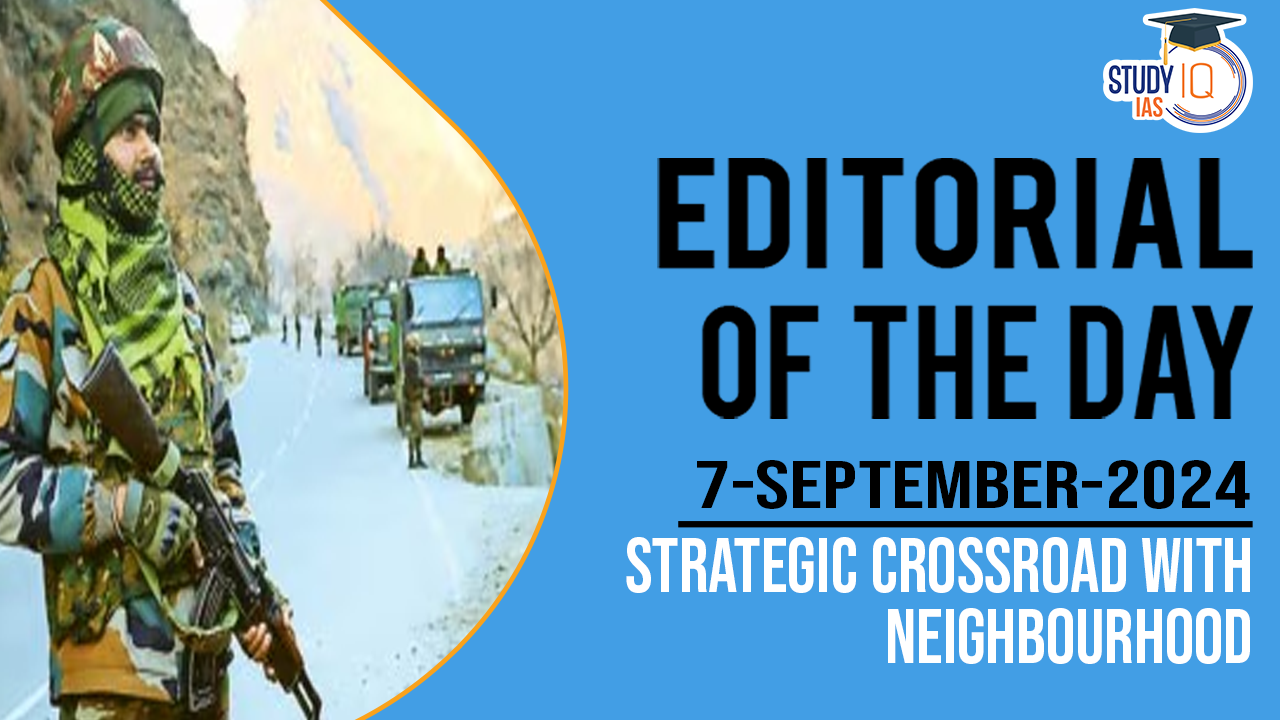Table of Contents
Context: India is facing increasing geopolitical challenges from China and Pakistan along with strained relations with its neighbours. To navigate these complexities, India requires strategic planning and strong alliances to safeguard its national interests and regional influence.
Geopolitical Challenges Faced by India in its Neighbourhood
- Stalemate with China
- India faces a prolonged military standoff with China in regions like Ladakh and Arunachal Pradesh.
- The 31st meeting of the diplomatic Working Mechanism on India-China Border Affairs concluded without progress in August 2024
- China continues to strengthen military positions and build “border defence” villages near Indian territory.
- China’s Influence in South Asia
- China is economically and militarily supporting Pakistan, using it as a proxy against India.
- Through projects like the Belt and Road Initiative (BRI) and Maritime Silk Road, China has increased its influence in India’s neighbouring countries.
- Strained Relations with Bangladesh
- India’s misjudgment of political sentiment in Bangladesh led to the fall of the India-friendly Sheikh Hasina regime in 2024. Bangladesh now faces political instability
- Challenges with Nepal and Sri Lanka
- India’s relations with Nepal and Sri Lanka have become strained, affecting its influence in the region.
- Despite India’s self-perception as a Vishwaguru or Vishwamitra, it is often seen by its neighbours as a big brother or bully.
Key Strategic Challenges
- China’s Economic and Military Dominance:
- India’s growing trade deficit with China (currently $85 billion) weakens its strategic autonomy.
- Dependence on Chinese imports in areas like electronics, machinery, and pharmaceuticals constraints India’s ability to respond to Chinese provocations.
- Dependence on Defense Imports:
- India is heavily dependent on foreign defence equipment from Russia, Ukraine, and Israel which poses risks, as these countries are embroiled in conflicts.
- Atmanirbhar Bharat (self-reliance) is a key goal, but it involves long gestational delays.
- Nuclear Deterrence:
- Both China and Pakistan have enhanced their nuclear capabilities, giving them an edge over India.
- China has increased its nuclear arsenal’s numbers, yield, and accuracy, while Pakistan has moved from “credible minimum deterrence” to “full spectrum deterrence”.
- India must strengthen its nuclear posture to counter potential nuclear blackmail.
Importance of Strategic Planning and Security Management for India
- Addressing Border Issues
- India needs clear strategies to handle long-term border disputes with China and Pakistan.
- Military preparedness in regions like Ladakh and Arunachal Pradesh is crucial for maintaining a strong defence.
- Countering Economic Vulnerabilities
- India needs to diversify its import sources. Reducing dependence on Chinese goods will increase India’s economic autonomy and strengthen its global position.
- Building Defence Capabilities
- Enhancing India’s defence manufacturing through initiatives like Atmanirbhar Bharat will reduce reliance on foreign imports.
- Need for Strategic Alliances
- India must form strategic alliances to counter regional hegemony and ensure national security.
- India needs external balancing through alliances to create space for economic growth, technological advancements, and military strengthening.


 SHANTI Bill 2025: India Opens Nuclear Se...
SHANTI Bill 2025: India Opens Nuclear Se...
 Revamp of MGNREGA Scheme 2025
Revamp of MGNREGA Scheme 2025
 National Energy Conservation Awards 2025
National Energy Conservation Awards 2025

























